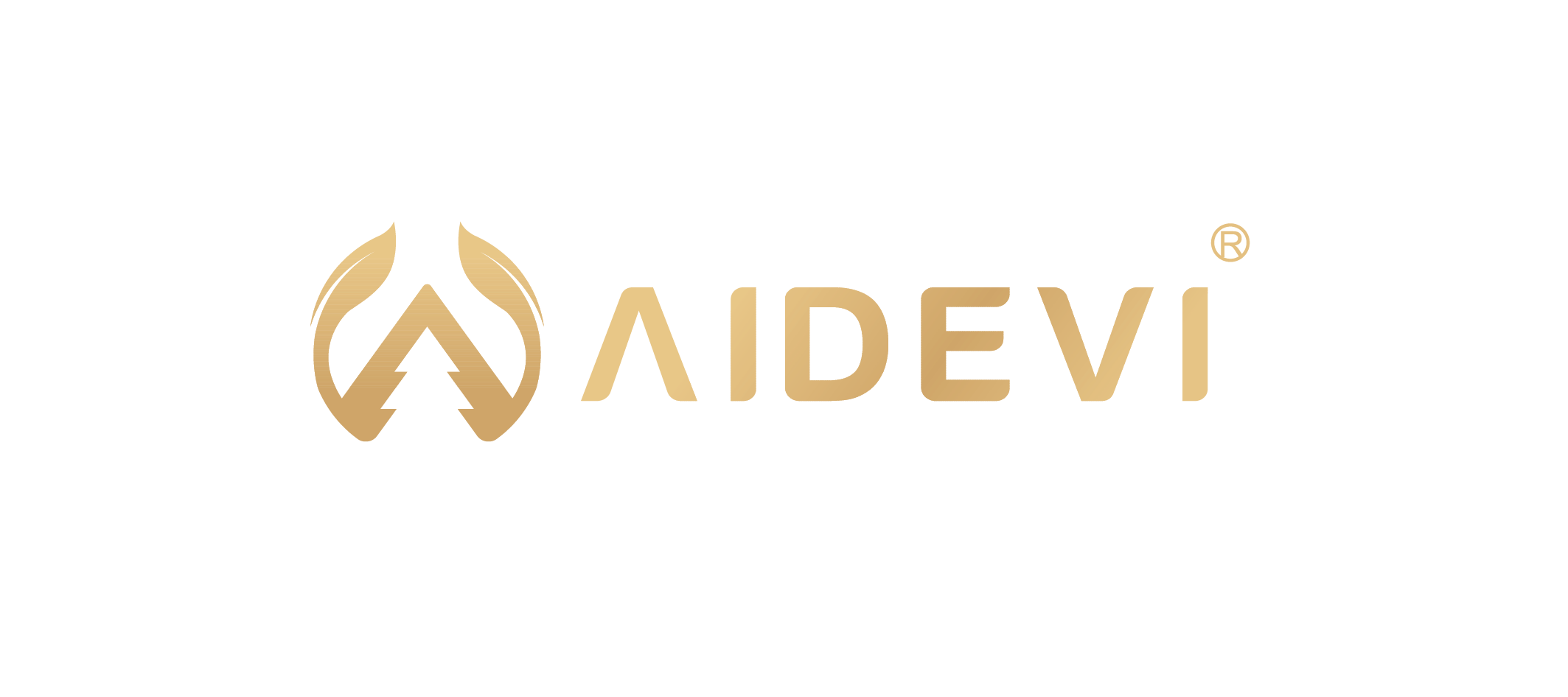How Many Do You Know NMN's Top Ten Functions 2024 ?
Mar 29,2024 | AIDEVI
How Many Do You Know NMN's Top Ten Functions 2024 ?

NMN, also known as β-nicotinamide mononucleotide, was discovered by scientists in 1904 and has gained widespread attention and fame in recent years due to its anti-aging effects research. However, if you think its effects are only anti-aging, then you are underestimating it. Today, let's take stock of the top ten recognized functions of NMN in the scientific community.
01
Anti-aging Effect
NMN can convert into NAD+ (nicotinamide adenine dinucleotide), which plays a crucial role in cellular metabolism. As age increases, the level of NAD+ in the body gradually decreases, leading to accelerated cell aging. Supplementation with NMN helps to increase NAD+ levels and delay aging.
Scientific Basis: Dr. Shinichiro Imai's research team at the University of Washington School of Medicine's Departments of Developmental Biology and Medicine published research on "β-nicotinamide mononucleotide (NMN)" in Science and Cell.
Research Conclusion: NMN supplementation helps promote cellular energy metabolism, improve mitochondrial function, reduce cellular oxidative stress, and aid in delaying the aging process.
02
Improvement of Brain Function
By increasing NAD+ levels, NMN promotes the growth and repair of neurons, helping to improve memory and prevent neurodegenerative diseases such as Alzheimer's.
Scientific Basis: In May 2023, a research team at Shanghai Changhai Hospital published a paper titled "β-Nicotinamide mononucleotide activates NAD+/SIRT1 pathway and attenuates inflammatory and oxidative responses in the hippocampus regions of septic mice" in Redox Biology.
Research Conclusion: NMN supplementation can alleviate memory impairment and neuronal damage caused by sepsis and reduce inflammation and oxidative stress in the hippocampal region of mice.
03
Improvement of Vascular Function
NMN can reduce vascular inflammation, improve vascular function, and reduce the risk of cardiovascular diseases.
Scientific Basis: In February 2023, a research team at the DHC Corporation laboratory in Japan published a study titled "Nicotinamide adenine dinucleotide metabolism and arterial stiffness after long-term nicotinamide mononucleotide supplementation: a randomized, double-blind, placebo-controlled trial" in Scientific Reports.
Research Conclusion: Long-term supplementation with 250 mg/day of NMN is well tolerated and does not cause adverse events. NMN supplementation can improve vascular health in middle-aged individuals, especially those with high BMI or blood sugar levels.
04
Inhibition of Tumor Growth and Metastasis
NMN helps inhibit the growth of triple-negative breast cancer (TNBC) tumors and prevent cancer metastasis.
Scientific Basis: In January 2023, a research team at Tsinghua University published a paper titled "NAD+ supplementation limits triple-negative breast cancer metastasis via SIRT1-P66Shc signaling" in the prestigious journal Oncogene.
Research Conclusion: NMN supplementation can inhibit the growth of triple-negative breast cancer (TNBC) tumors. Additionally, NMN significantly improves cancer survival rates and prevents cancer metastasis. These results may bring hope for inhibiting the growth and spread of TNBC.
05
Improvement of Sleep Quality
Supplementing with NMN can counteract the decline in sleep quality associated with aging.
Scientific Basis: In January 2023, a study titled "Nicotinamide Mononucleotide Ameliorates Sleep Deprivation-Induced Gut Microbiota Dysbiosis and Restores Colonization Resistance against Intestinal Infections" was published online in Adv Sci (Weinh).
Research Conclusion: Supplementing with NMN counteracts the decline in sleep quality associated with aging, while also improving gut microbiota diversity.
06
Improvement of DNA Repair Ability
NAD+ is the main substrate of DNA repair enzyme PARP1. NMN, by increasing NAD+ levels, enhances cellular DNA repair ability and reduces DNA damage.
Scientific Basis: In February 2023, a research team at Nanjing Medical University published a study titled "Nicotinamide mononucleotide restores oxidative stress-related apoptosis of oocyte exposed to benzyl butyl phthalate in mice" in Cell Proliferation.
Research Conclusion: Benzyl butyl phthalate (BBP) accelerates oocyte aging and reduces fertilization rates. Supplementing with NMN can reverse oocyte aging, prevent aging-induced cell DNA damage, mitochondrial damage, and cell death.
07
Regulation of the Immune System
NMN can regulate the activity of immune cells, improve the body's immunity, and fight against infections and inflammation.
Scientific Basis: In July 2023, a study titled "Nicotinamide mononucleotide (NMN) alleviates the poly(I:C)-induced inflammatory response in human primary cell cultures" was published online in Scientific Reports.
Research Conclusion: NMN reduces the expression of inflammatory response-related factors induced by poly(I:C), including IL-6 and PARP family members, indicating that supplementing with NMN can alleviate virus-mediated inflammation and reduce virus replication.
08
Restoration of Olfactory Function
Supplementing with NMN can increase cellular levels of NAD+, and NAD+ supplementation can prolong the lifespan of aging mice and restore olfactory function.
Scientific Basis: In February 2023, Professor Vilhelm A. Bohr's team at the National Institute on Aging published an article titled "Loss of smelling is an early marker of aging and is associated with inflammation and DNA damage in C57BL/6J mice" in Aging Cell journal.
Research Conclusion: Nicotinamide mononucleotide (NMN) is a precursor of nicotinamide adenine dinucleotide (NAD+) in physiological circulation. Supplementing with NMN can increase cellular levels of NAD+. Compared to memory and motor behavior disorders, olfactory dysfunction may be a more sensitive early biomarker of aging. Supplementing with NAD+ can restore olfactory function in elderly mice and prolong lifespan.
09
Improvement of Metabolic Function
NMN participates in various metabolic reactions and can improve glucose metabolism, lipid metabolism, etc., helping to control weight and prevent metabolic diseases such as diabetes.
Scientific Basis: In May 2023, the official journal of the European Society for Clinical Nutrition and Metabolism (ESPEN), Clinical Nutrition, published a study titled "Nicotinamide mononucleotide (NMN) intake increases plasma NMN and insulin levels in healthy subjects."
Research Conclusion: Postprandial serum insulin levels increase with increasing NMN intake. Long-term NMN intake may increase the duration of postprandial insulin secretion, effectively improving the disease status of diabetes.
10
Alleviation of Lung Injury Induced by Particulate Matter such as PM2.5
Supplementing with NMN can have a recovery effect on lung injury induced by particulate matter such as PM2.5.
Scientific Basis: In July 2023, the journal Environmental Health Perspectives published a study titled "Assessing the Effects of Nicotinamide Mononucleotide Supplementation on Pulmonary Inflammation in Male Mice Subchronically Exposed to Ambient Particulate Matter."
Research Conclusion: Supplementing with NMN can have a recovery effect on lung injury induced by particulate matter such as PM2.5 by regulating immune function and lipid
metabolism.
Although NMN is beneficial to human health, we should also note that NMN is not a drug but a dietary supplement. Faced with the mixed products on the market, it is important to identify their NMN content, formulation, purity, and administration methods. If you find it too troublesome, follow the crowd and choose the AIDEVI NMN version directly. This version of NMN capsules contains up to 18,000 NMN per bottle. Clinical trials conducted by AIDEVI have shown that taking 600 mg of NMN per day is more beneficial to the human body.
Experimental Background: A randomized, multicenter, double-blind, placebo-controlled, parallel-group, dose-dependent clinical trial conducted by AIDEVI, in which 80 healthy middle-aged adults aged 40-65 were randomly assigned to a 60-day clinical trial. They took a placebo, 300 mg, 600 mg, or 900 mg of NMN orally once a day. The safety and tolerability of NMN supplements and changes in participants' blood NAD+ concentrations were evaluated. Clinical efficacy was assessed by measuring physical performance (six-minute walk test), biological age (Aging.Ai3.0 calculator), and a subjective general health assessment using the 36-item short-form survey tool (SF-36).
Experimental Conclusion: NMN supplements are safe and well-tolerated at daily doses of up to 900 mg orally. The SF-36 assessment trial results indicate that NMN supplementation improves the overall health status of middle-aged individuals over 60 days. Persistently supplementing with NMN has a positive impact on the physical endurance and general health status of healthy adults. Comparing the blood NAD+ concentrations and physical performance between daily oral doses of 600 mg and 900 mg of NMN, the clinical efficacy of both doses is similar. Overall, daily oral supplementation of 600 mg of NMN is a preferable dose choice.
In addition,AIDEVI's NMN Plus capsules are produced using a biocatalytic process that achieves a purity of up to 99.99%. The administration method has also been upgraded to a unique sustained-release capsule, greatly improving absorption rates and making it more convenient and reliable to use.
.jpeg?w=1076&h=628)


-1.jpeg?w=1200&h=675)
.jpeg?w=1200&h=675)
-5.jpeg?w=1200&h=675)


